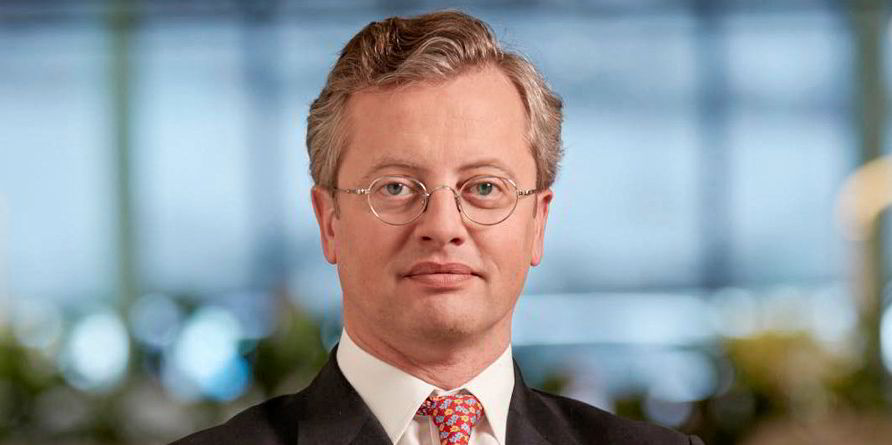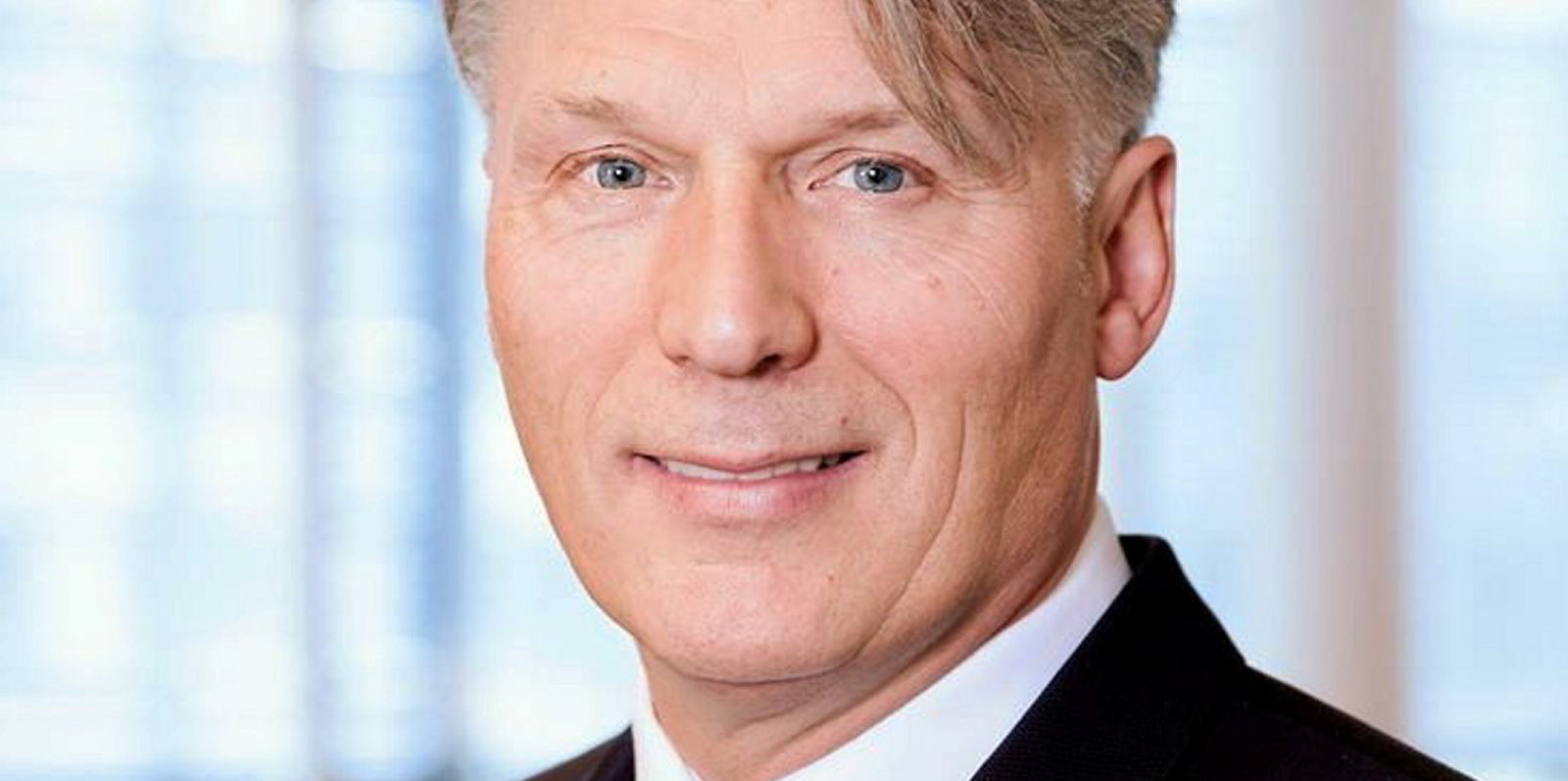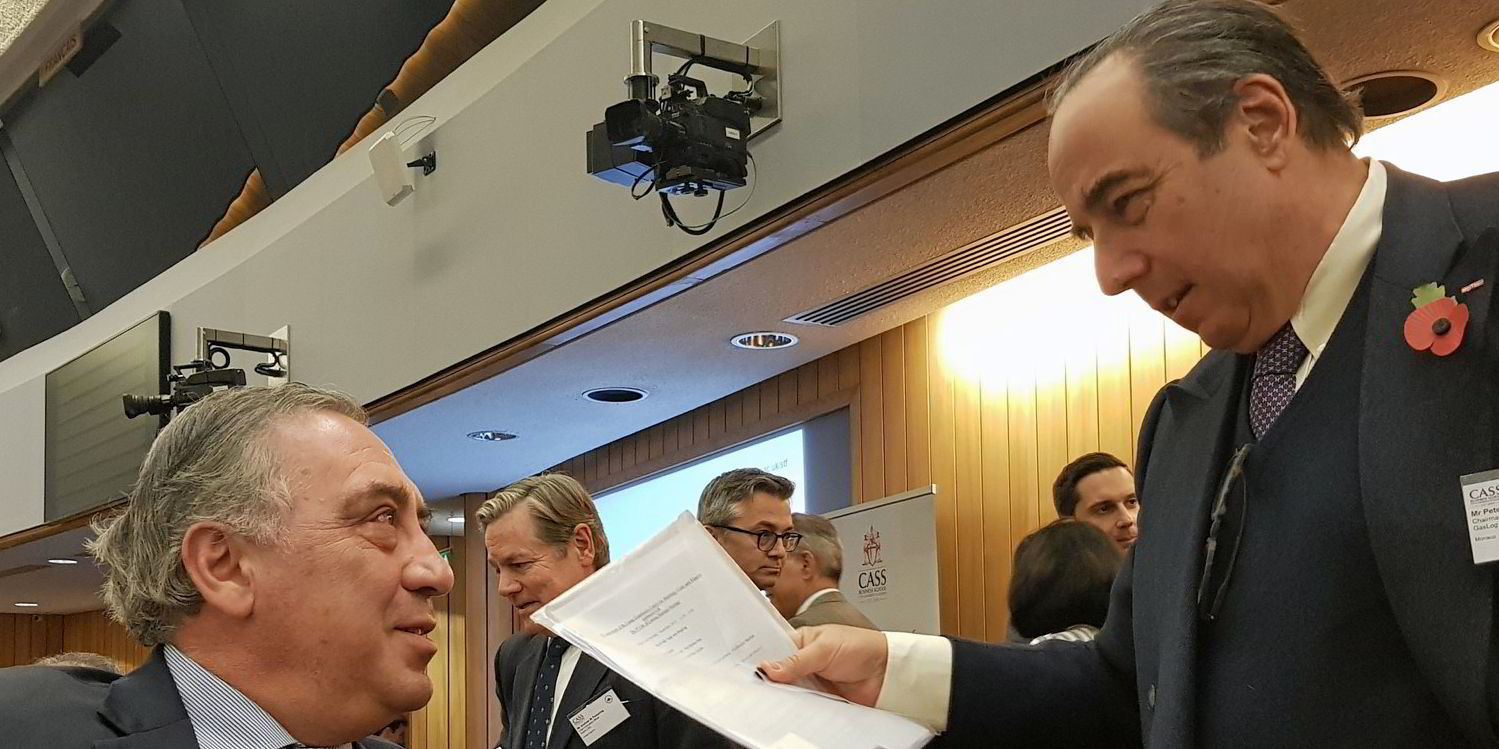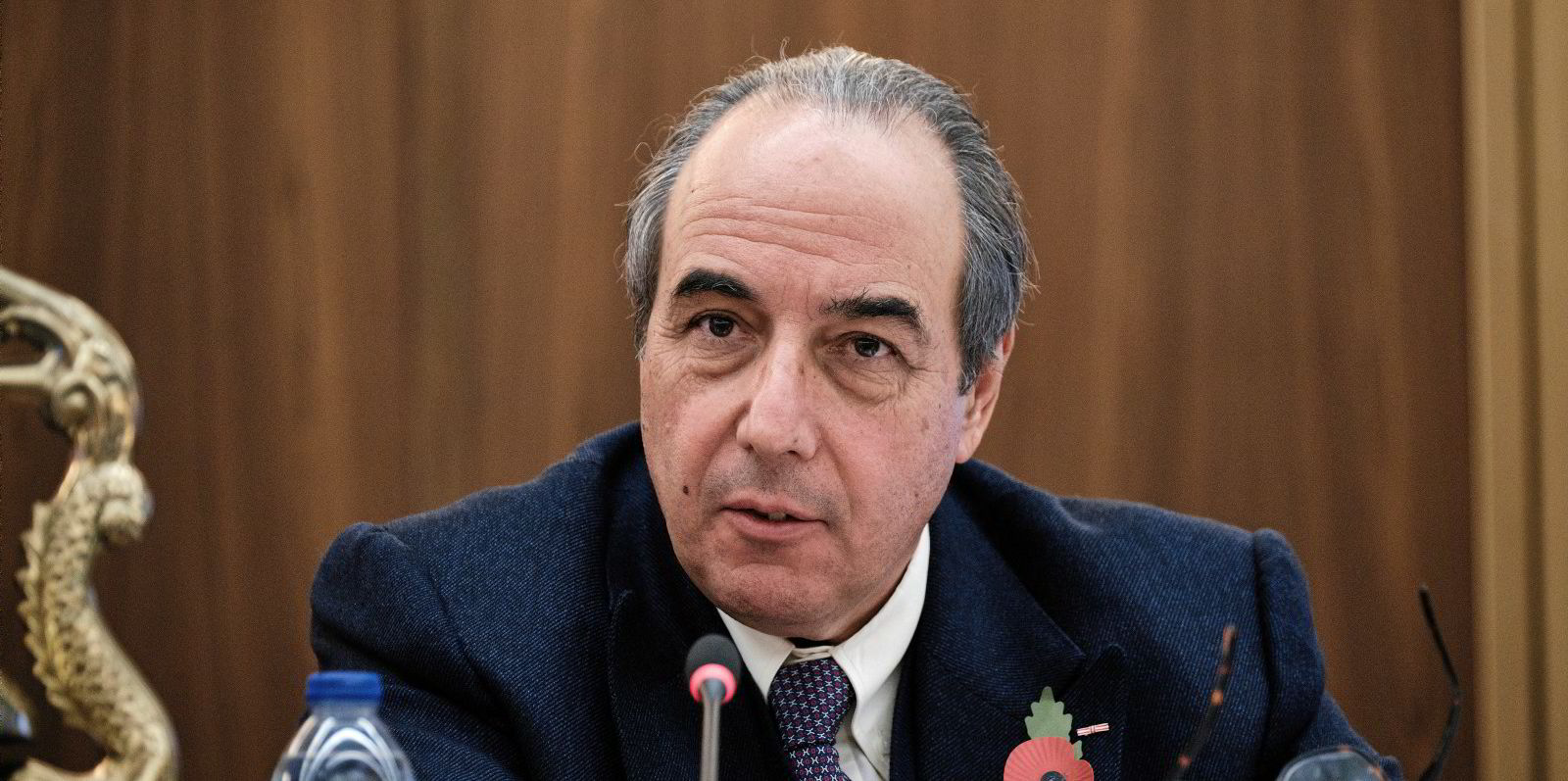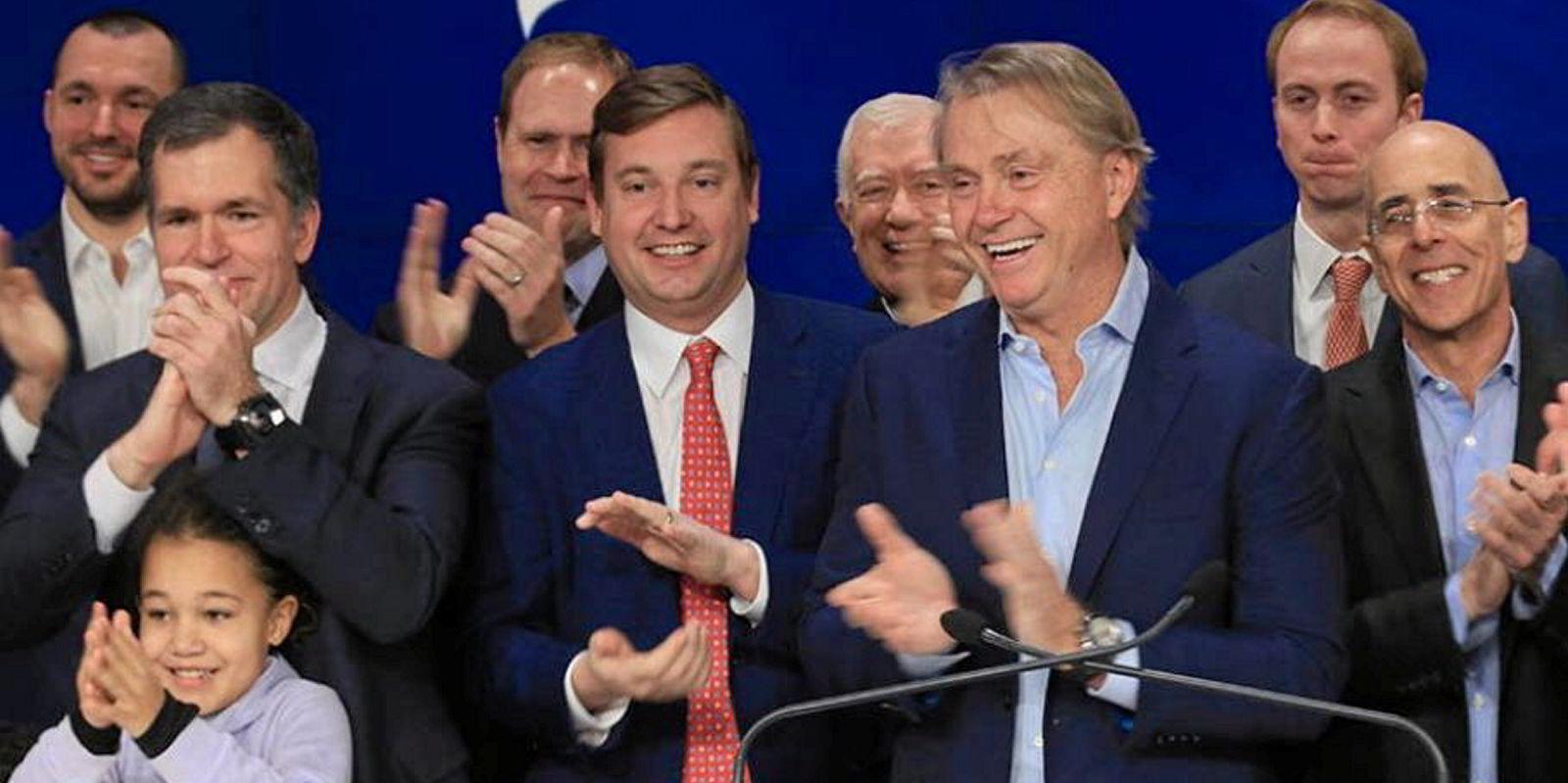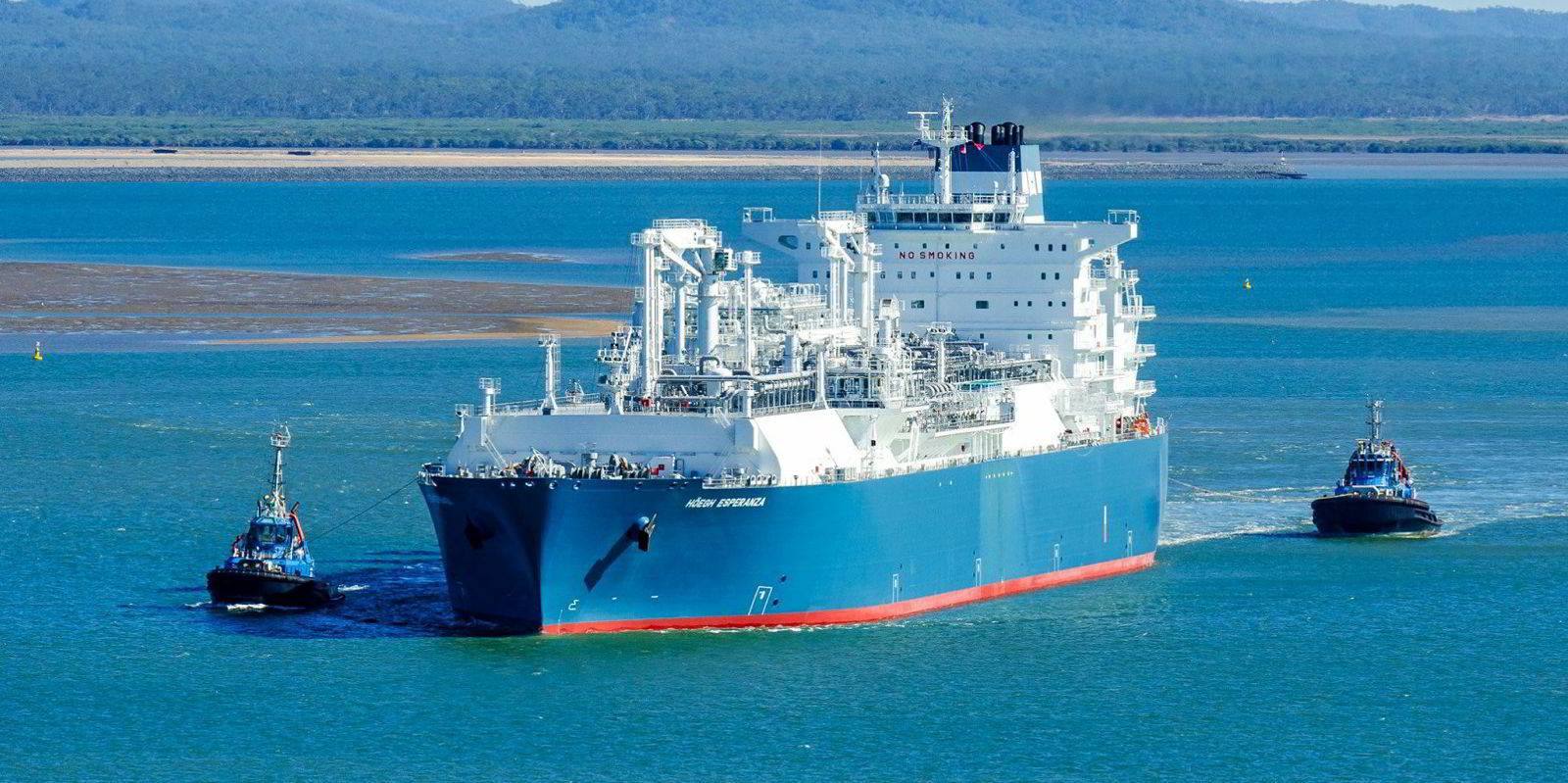A planned privatisation by main shareholder Leif Hoegh & Co will help Hoegh LNG Holdings accelerate its development of zero-carbon energy solutions while building on its LNG assets.
Morten Hoegh, who was speaking to TradeWinds on behalf of the family holding company and as chairman of Hoegh LNG, said natural gas and LNG would play important roles as transition fuels, with demand for LNG forecast to grow 50% over the next 15 to 20 years, before declining as the world moves to zero-carbon.
While this growth will provide “many exciting opportunities”, he said the company needed to think in parallel about the shift to non-fossil, cryogenic zero-carbon fuels.
Hoegh said these would also require floating infrastructure solutions.
“We believe that we should be as well positioned as anyone to develop those kinds of solutions," he said.
"We feel it is incumbent upon us to accelerate developments in this area,” he added, citing the market opportunities, demand from customers and internal company enthusiasm.
But he said Hoegh LNG would likely be more successful in this under its planned new configuration.
Going private
On Monday, Norwegian family entity Leif Hoegh & Co unveiled plans to partner with Morgan Stanley Infrastructure Partners (MSIP) to take the Oslo-listed company private.
Working together, the two aim to acquire the outstanding 50.4% shares in Hoegh LNG in a deal that values the company at about $214m. Master limited partnership (MLP) Hoegh LNG Partners is not part of the transaction.
Under the new structure, Hoegh said the priorities would be to line up long-term contracts for the company’s available floating storage and regasification units, expand add-on services to its regas units and develop new non-carbon solutions, such as hydrogen and ammonia.
The planned privatisation move mirrors February’s GasLog-BlackRock deal and follows Golar LNG’s sell-out of its MLP and downstream FSRU assets to New Fortress Energy.
Hoegh conceded that GasLog and its chairman, Peter Livanos, have been grappling with some of the same issues.
Share price woes
Key among these is a crumbling share price that plummeted from more than NOK 100 ($11.77) in 2017 to under NOK 10 a year ago, before rising nearly NOK 6 on Monday’s announcement to over NOK 23.
Hoegh described the share-price development over recent years as “disappointing”.
He said it had not met the market’s expectations and blamed a combination of bad luck, project delays and some over-optimistic decision-making, which left the company with four open FSRUs.
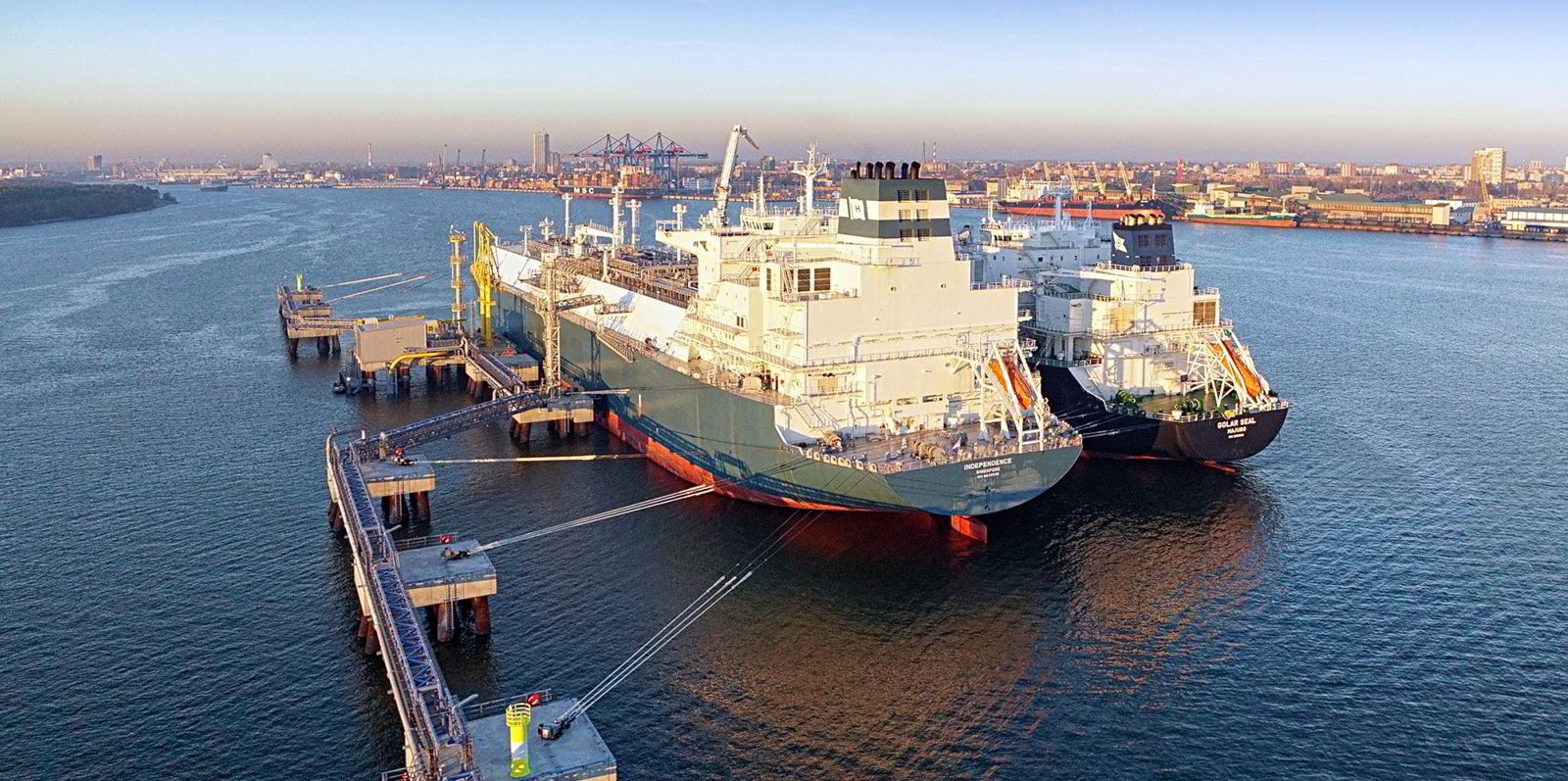
More broadly, he said energy and shipping stocks have “fallen out of favour” with institutional investors.
Hoegh said the company’s FSRUs are targeted at long-term project business that takes time to develop. He added that this does not fit well inside a public structure, where the market expects quarterly excitement from companies.
“The upside in our business comes from winning new FSRU contracts and, in a good year we will do two to three, in an average year one or two, and in a bad year we won’t do any,” he said.
“We found ourselves with a weak share price and the public equity markets increasingly not appreciating us as an attractive stock to buy and hold.
“The public equity markets no longer represented a competitive source of capital for new growth. We had very few of the benefits of being publicly listed, but we still had all the constraints and obligations that come with being public.”
Partner search
Hoegh said this prompted Leif Hoegh to assess its options. Simultaneously, it was approached by several infrastructure funds interested in LNG and offering capital.
A formal process was launched to scan the market for potential partners, with MSIP already on the company’s radar.
About 10 candidates — comprised of infrastructure investors, corporate outfits and strategic companies — were identified and quickly whittled down.
The intention was to wrap up the process in 2020 but virtual meetings with new faces during Covid-19 travel restrictions proved challenging.
Hoegh said MSIP proved a good cultural fit.
He highlighted MSIP's access to capital and its institutional toolbox of skills.
“Being part of a large institution, they can open some new doors and work alongside us to accelerate the business,” he said.
For Leif Hoegh, Hoegh said the main attraction under this new joint ownership is that the hundreds of passive shareholders will be replaced with one new partner that brings something complementary to the table.
“By being private and being able to operate away from the scrutiny of the public capital markets, we think we can strategically accelerate the business,” he said.
